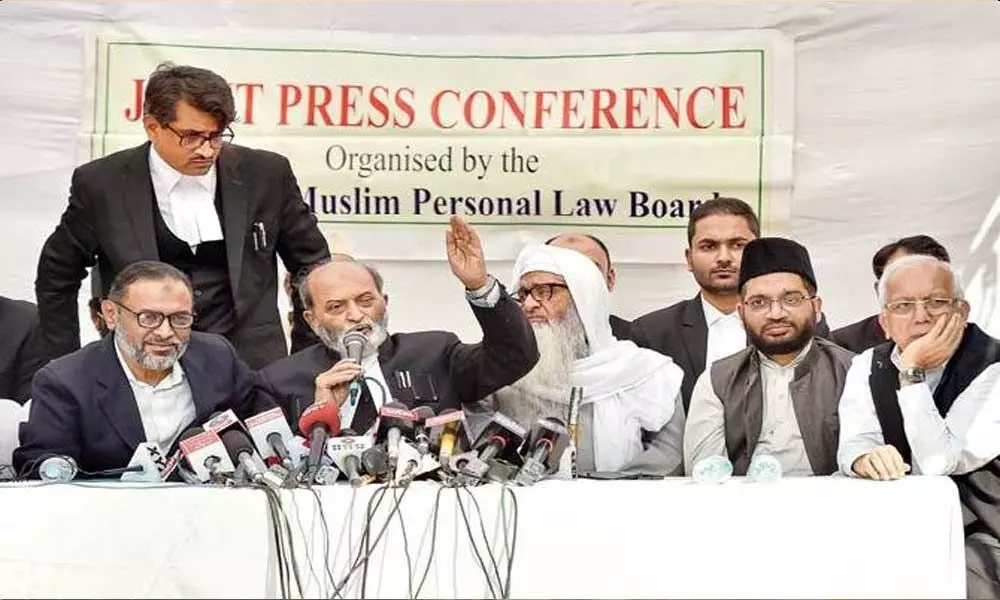Live
- Cricket Australia to honour late Philip Hughes on 10th anniversary
- Khushi Kapoor shines bright
- Suhana Khan’s power dressing game is inspiring
- Disha Patani sets the internet ablaze
- YSRCP Announces Boycott of PAC Elections
- Badshah and Davido tease epic collaboration
- Skills for the future: Adapting education to meet employability demands
- Breaking a Century-Old Rule: How Garg’s Team Challenges Bredt’s Rule in Organic Chemistry
- Neha Bhasin rocks with her debut rap song
- Moong Dal Ki Kachori: A delightful crispy treat
Just In
Ayodhya Verdict: Sunni Waqf Board likely to take call on 5-acre land on November 26

UP Sunni Waqf Board chairman says some have advised to accept the land and build an educational institution on it with a mosque on the premises
Lucknow: The Sunni Central Waqf Board on Sunday said a decision on whether to accept a 5-acre land for building a mosque in Ayodhya will be taken at its meeting likely on November 26. The Supreme Court on Saturday paved the way for the construction of a Ram Temple at the disputed site at Ayodhya, while directing the Centre to allot a 5-acre plot to the Sunni Waqf Board for a mosque.
UP Sunni Central Waqf Board Chairman Zufar Farooqui said he was getting diverse views on whether to take the land. "Board's general body meeting is expected on November 26 in which it will be decided whether to take 5-acre land as directed by the Supreme Court or not," he said. "I am getting diverse views on taking the land but I personally feel negativity can be won only with positivity," Farooqui said. He said some persons are advising that land should not be taken for the Babri mosque but "I think it will increase negativity."
"Some persons are also advising that the land should be taken by Waqf board and an educational institution, with a mosque established in its premises," he said. "We welcome the Supreme Court verdict in the case. The Board has no plans to challenge it," he added.
'Sad' Over Verdict, Muslims Cancel Prophet Procession
The processions, taken out on Prophet Muhammad's birth anniversary Milad-un-Nabi, were cancelled in Ayodhya on Sunday, some local Muslim leaders said. "There are two reasons. The first one is to maintain peace (in the city). Secondly, (it was) to express our sorrow after the verdict," said Qadri, Faizabad's Qazi-e-Shahar.
'SC Ruling Unjust'
Jamiat Ulama-i-Hind (JUH) general secretary Maulana Mahmood Madani on Sunday said the Supreme Court's ruling was "unjust" and in "utter disregard" of truth and evidence. "This is clear discrimination against the particular community... It has shaken the faith of the minorities in the judiciary as they believe that they have been wronged," he said.

© 2024 Hyderabad Media House Limited/The Hans India. All rights reserved. Powered by hocalwire.com






